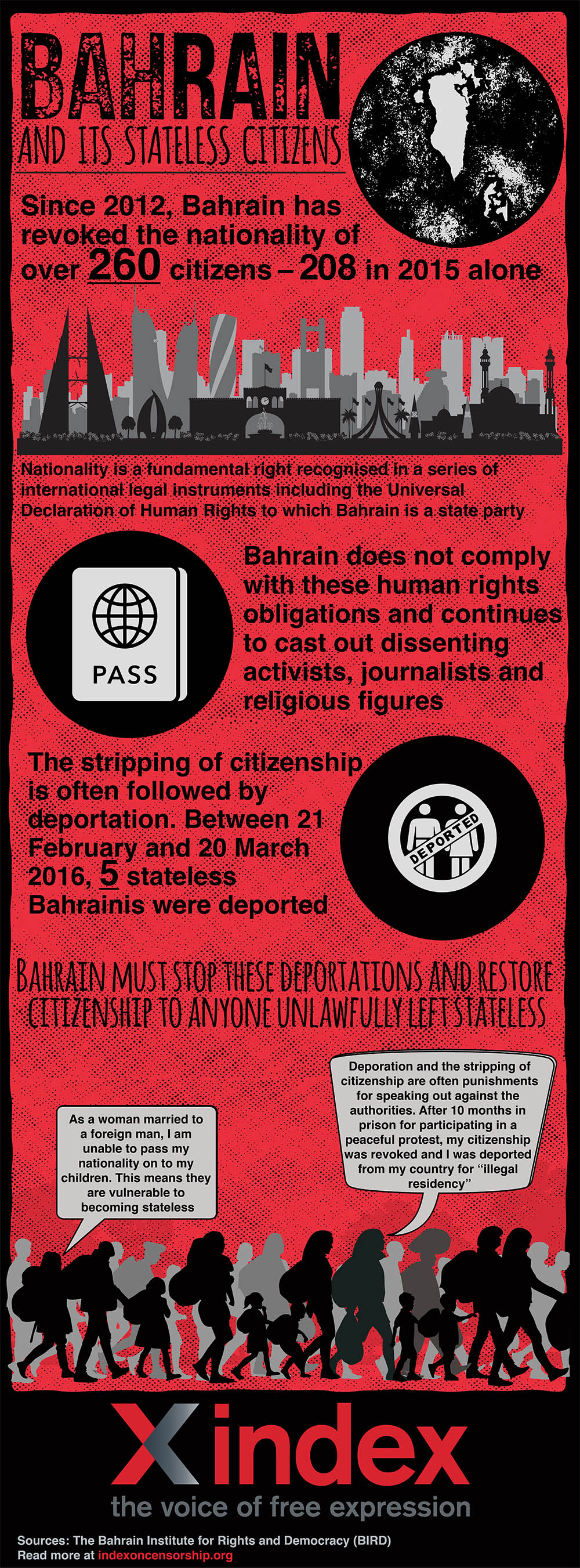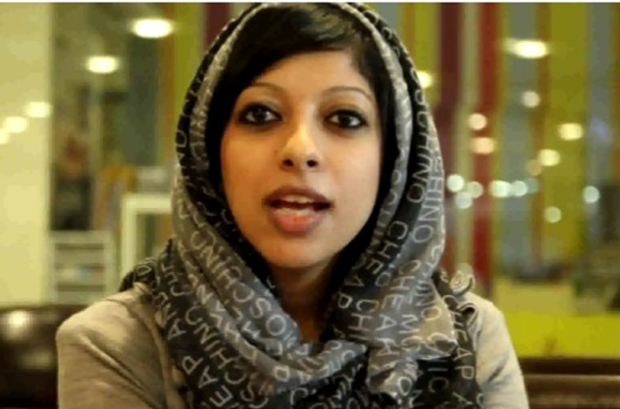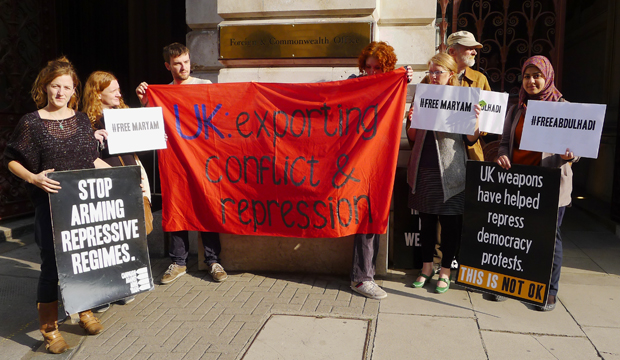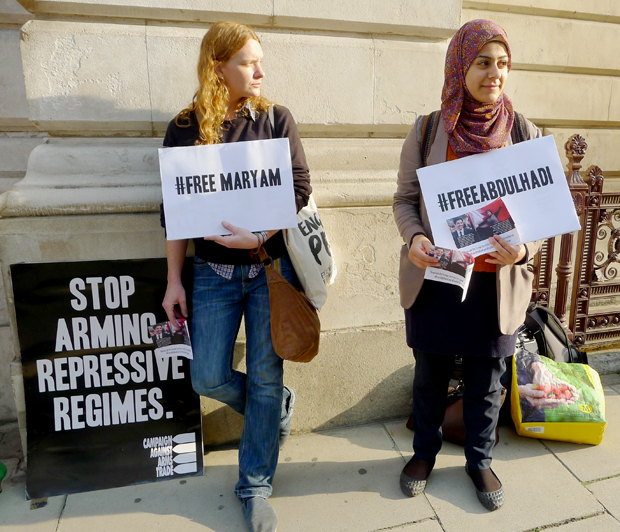28 Apr 2016 | Bahrain, Middle East and North Africa, mobile, News and features

When we read about displaced people in the press, we usually hear about Syrian refugees fleeing IS or the one person per second displaced by natural disasters. We are less likely to be made aware of those who have become stateless through forced displacement.
Nationality is something most of us take for granted, but for the 10 million people worldwide who are effectively stateless, the issue is much less trivial.
Bahrain, in particular, has intensified the use of stripping citizenship from those who dissent or speak out in protest as a form of punishment. Since 2012 – when the country’s minister of the interior made 31 political activists stateless, many of whom were living in exile – 260 citizens have fallen victim, 208 in 2015 alone. Eleven juveniles, at least two of which have received life sentences, and 30 students are known to be among them.
Nationality is a fundamental right recognised in a series of international legal instruments, including the Universal Declaration of Human Rights and the International Covenant on Civil and Political Rights to which Bahrain is a signatory. The country repeatedly fails to comply with these obligations.
In 2014, new amendments to the country’s 1963 citizenship law further increased the power of the ministry of the interior and gave judges the authority to make anyone convicted under Bahrain’s anti-terrorism act, which fails to properly define terrorism, stateless.
In the case of Sayed Alwadaei, director of advocacy at the Bahraini Institute for Rights and Democracy (BIRD) and 71 others who were deprived of citizenship in January 2015, their “crimes” included vague terms such as “inciting and advocating regime change” to “defaming brotherly countries”.
Speaking to Index on Censorship, Alwadaei said: “Bahrain is setting up a dangerous precedent. No state has rendered as many of its citizens stateless in 2015. These revocations are politically motivated, and are becoming more common because they got away with it in 2012.”
“I was targeted because of my activism, and Bahrain considers human rights advocates as terrorists,” he added. “As I was not inside the country to face imprisonment, my nationality was the only way they could inflict pain on me. It was used as a tool to cause the maximum damage to stop my human rights work.”
While Alwadaei has not let the authorities take his identity, it does mean he is now stateless. “For my family, it means my infant son can’t have Bahraini citizenship, although his mother is also Bahraini.”
The danger for those made stateless inside Bahrain’s borders is that they do not have access to jobs, schools or health care and their bank accounts are closed, Alwadaei explains. “The people revoked of citizenship are at high risk of deportation by the court; many already have been under charges of ‘illegal residency’.”
These instances are also increasing. Between 21 February and 20 March 2016, five stateless Bahrainis were deported. One of these was Hussain Khairallah, whose citizenship had been revoked since 2012. He had been a union organiser and one of the medics who treated wounded protesters during the Bahrain’s Bloody Thursday in February 2011 when security forces launched a pre-dawn raid to clear a protest camp at Pearl Roundabout in Manama.
Anyone speaking out against the authorities faces such risks.
These practices and threats should immediately cease and all those who have fallen victim should have their citizenship restored. It is their right.
26 Feb 2015 | Bahrain, Middle East and North Africa, mobile, News and features
![By Thatcher Hullerman Cook (https://www.flickr.com/photos/poptech/5107260975) [CC BY-SA 2.0 (http://creativecommons.org/licenses/by-sa/2.0)], via Wikimedia Commons](https://www.indexoncensorship.org/wp-content/uploads/2015/02/John_Legend_NEW-SIZE.jpg)
By Thatcher Hullerman Cook (https://www.flickr.com/photos/poptech/5107260975) [CC BY-SA 2.0 (http://creativecommons.org/licenses/by-sa/2.0)], via Wikimedia Commons
“While sitting at his gleaming grand piano, accompanied by the subtle brilliance of four string instrumentalists and a guitarist, the 35-year-old crooner captivates his audience at the simply wonderfull (sic) intimate venue,” reads the promotional blurb on the festival’s website. And it looks to have been a popular booking, as tickets reportedly sold out in hours.
But many are unhappy with the concert going ahead, due to Bahrain’s poor human rights record. The Gulf monarchy has seen significant protests since 2011 calling for democracy and human rights, which have been cracked down on by authorities. “The government continued to stifle and punish dissent and to curtail freedoms of expression, association and assembly,” Amnesty International said of Bahrain in their recently released annual report.
Among those speaking out against the show, was prominent human rights defender Maryam Alkhawaja. Her father and sister are currently imprisoned in Bahrain on charges related to their campaigning work.
Nabeel Rajab, another famous human rights campaigner, also reached out to Legend on Twitter. Rajab was in January sentenced over a tweet where he allegedly “denigrated government institutions”. He was today again summoned by Bahraini police, and fears he can be arrested “at any time“.
Many expressed disappointment that Legend, who on numerous occasions in recent times has spoken out on racism and injustice in his native US, would perform in Bahrain given the country’s current political situation.
Marc Lynch also expanded on his thoughts in an open letter to Legend:
You have emerged as a voice of conscience in today’s America. In your writing, performances and speeches you have proven yourself to be a principled champion of equality who is unafraid to speak out for what is right. Last year, you wrote that “As I watched the final version of Selma, I did so with the backdrop of the streets of many of our major cities filled with protesters, crying out for justice after yet another unarmed black person’s life was taken by the police with impunity.”Bahraini lives have been taken by the police with impunity as well, and Bahraini lives do matter. I hope that you will think deeply about the implications of performing in a country like today’s Bahrain, where the violence of an unaccountable police against peaceful protestors mirrors everything against which you have spoken out at home.
While some called for a cancellation of the show, others urged Legend to use his platform to speak out about human right abuses in Bahrain, as he has done in the US.
But not everybody agreed with the criticism.
This isn’t the first controversial celebrity visit to Bahrain. In 2012, reality star Kim Kardashian visited the country to launch a Millions of Milkshakes store. As Index’s Sara Yasin wrote at the time: “Bahrain is no stranger to using flashy events to attempt to whitewash its tarnished international reputation.”
Update 2 March 2015, 16:28pm
John Legend has responded to the criticism, saying that “the solution to every human rights concern is not always to boycott” and that he hopes “to meet the many people who are peacefully struggling for freedom, justice and accountability, regardless of what country they live in”. Full statement below, via The Independent:
Some have recently suggested that, due to documented human rights abuses by the government of Bahrain, I should cancel my upcoming concert there. After consulting with human rights experts, I decided to keep my commitment to perform for the people of Bahrain, many of whom I am proud to call my fans, during their annual festival. I have spent quite a bit of time thinking about human rights, civil rights and other issues of justice, both in the United States and abroad. The solution to every human rights concern is not always to boycott. Most of the time I will choose to engage with the people of the country rather than ignore or abandon my commitments to perform for them. Often, the best way to drive progress is to show up and participate in the conversation. As we move this work forward, I hope to meet the many people who are peacefully struggling for freedom, justice and accountability, regardless of what country they live in, and tell them directly that I stand with them. Part of my mission in life is to spread love and joy to people all over the world. I intend to do just that in Bahrain, regardless of my disagreements with some of their governments’ policies and actions.
Additional reporting by Danielle Quijada.
This article was posted on 26 February 2015 at indexoncensorship.org
5 Dec 2014 | Bahrain, Middle East and North Africa, News and features

Bahraini human rights activist Zainab Al-Khawaja has been sentenced to three years in prison for “insulting the king”.
The verdict was handed down by a Manama court on Thursday, and also included a fine of 3,000 Bahraini Dinar (£5,000). She was on trial for tearing up a photo of King Hamad bin Isa Al-Khalifa at an October court date where she faced charges connected to previous rights campaigning. This comes only days after she gave birth to her second child.
The Al-Khawaja family have been heavily involved in Bahrain’s pro-democracy movement, and have been continuously targeted by authorities in the constitutional monarchy.
Al-Khawaja’s father Abdulhadi Al-Khawaja has been serving a life sentence since 2011 for the role he played in the country’s ongoing protest movement which started that year. Her sister Maryam Al-Khawaja boycotted the recent court hearing which saw her sentenced to one year in prison on what is widely acknowledged to be trumped up charges.
This article was posted on 5 Dec 2014 at indexoncensorship.org
9 Sep 2014 | Bahrain, News and features, Politics and Society, United Kingdom

Protest for the release of Bahraini human rights activists at the British Foreign and Commonwealth Office
Today a protest was held outside the Foreign and Commonwealth Office calling for the UK government to condemn the regime in Bahrain and support the release of human rights campaigner Maryam Alkhawaja and her father, Abdulhadi Alkhawaja, who has been in prison in the country since 2011.
The UK has had a close relationship with Bahrain’s government, supplying them with weapons in the past. The British government has failed to speak about human rights violations in the country. The protest was aimed at foreign office staff on their way to work to raise awareness of the issue and spark internal debate.

Maryam Alkhawaja was detained in Bahrain at the end of last month when she travelled to the country to visit her father, a Bahraini human rights campaigner and co-founder of the Bahrain Centre for Human Rights (BCHR), which won the 2012 Index Freedom of Expression Award for Advocacy; he is serving a life sentence for terrorism offences and began a hunger strike two weeks ago.
Sign the Free Maryam petition here
This article was posted on 9 Sept 2014 at indexoncensorship.org


![By Thatcher Hullerman Cook (https://www.flickr.com/photos/poptech/5107260975) [CC BY-SA 2.0 (http://creativecommons.org/licenses/by-sa/2.0)], via Wikimedia Commons](https://www.indexoncensorship.org/wp-content/uploads/2015/02/John_Legend_NEW-SIZE.jpg)


